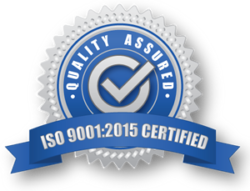By Nkobowo Nkobowo Esq., Chinaza Duke Nwosu Esq., Ch.Reg., Osaretin Aimuan Esq., ACiarb.
INTRODUCTION
It is without doubt that the Petroleum Industry Act of 2021 has introduced far reaching legal and regulatory changes and new introductions to the oil and gas industry in Nigeria. One of such new introductions can be found in Chapter 3 of the Act. Pursuant to the said Chapter 3, the Act mandates settlor oil companies to incorporate Host Community Development Trusts. In furtherance of that, section 234 of the Act further granted powers to the Nigerian Upstream Regulatory Commission and the Nigerian Midstream and Downstream Petroleum Regulatory Authority to make regulations governing the administration of the said Trust, with respect to settlor companies within their respective coverage and jurisdiction. It is in pursuance of this power that the Nigerian Upstream Regulatory Commission have now made the Nigeria Upstream Petroleum Host Communities Regulations, made a gazette on the 23rd day of June 2022. This is a succinct review of the said Regulations.
In this review, reliance has been placed on
- The Petroleum Industry Act 2021 (the Act)
- The Nigeria Upstream Petroleum Host Communities Development Regulations 2022 (the Regulations)
- The Host Communities’ Development Trust Implementation Template (the Template)
Particular reference has been given to the responsibilities and liabilities of the settlor (or operator) under the framework. Thus, even though the duties of other parties are not left out, the Settlor’s duties constitute the major fulcrum of this review.
DUTIES OF THE VARIOUS PARTIES UNDER THE ACT AND REGULATIONS
The operational or implementation framework for chapter three of the Act, involves the interplay of the duties placed on various parties/entities that are required to be set up under the Act. These parties include the Settlor (or Operator), the Board of Trustees of the Trust, the Management Committee of the Trust, the Advisory Committee of the Trust.
DUTIES OF THE SETTLOR (OR OPERATOR WHERE APPOINTED)
The Settlor is tasked with performing a number of duties under Chapter 3 of the Act. A number of these duties are to be performed within specific time frames as stated under the Regulations. Also, some of these duties are to be performed after approval has been obtained from the Commission. The approval from the Commission is also to be sought within a specific time frame as well.
It is necessary to note that where a collection of settlors operate under a joint operating agreement with respect to upstream petroleum operations and an operator has been appointed under that agreement, an enormous shift in responsibility occurs. More precisely, by Section 235(2) of the Act, it is the operator who has been appointed under the agreement that is saddled with the legal responsibility of complying with Chapter 3 (the host community development provisions) on behalf of the settlors. Clearly, the word ‘shall’ is used in placing the responsibility of compliance with Section 3 on the Operator and this therefore implies a mandatory position.
Section 235(2) of the Act is silent on who bears the brunt (or is liable) where the Operator fails to fulfill his mandatory duties under Section 235(2) of the Act. Regulation 4(3) of the Regulations fills in a lacuna, however, Regulation 4(3) makes the licensee or lessee liable for the operator’s failure to comply with the Act or Regulations.
The duties of the Settlor (or operator where applicable/appointed) include;
- Incorporating of the host communities development trust[1] with the Corporate Affairs Commission (CAC)
- In consultation with the Communities appoint the Board of Trustees (the first trustees) of the Trust[2]
- In consultation with the advisory Committee appoint additional or replacement Trustees, other than the first Trustees[3]
- Seek the Commission’s approval before incorporating the Trust with the Corporate Affairs Commission (CAC)
- Determining the criteria for the appointment, selection, remuneration, discipline, suspension/removal, qualification/disqualification of any member of the Board of Trustees[4]
- Conducting a needs assessment that will evolve into the community development plan[5]
- Developing a host communities development plan for submission to the Commission as preparatory to the establishment of the trust[6]
- Providing a matrix for distribution of the trust fund to the host communities[7]
- Establishing the host communities development trust fund[8]
- Contributing to the Trust Fund on an annual basis[9]
DUTIES OF THE BOARD OF TRUSTEES
The Board of Trustees of the Trust is entrusted with carrying out some duties under the framework. These duties include[10];
- Determining the criteria, process and proportion of the trust fund that will be allocated to specific development programs
- Approving the projects to be executed using the trust fund
- Setting up the management committee for the trust and appointing the committee members.
- Providing general oversight of the projects carried out under the trust fund
- Approving the appointment of or engaging fund managers for managing the reserve fund[11]
- Determining the allocation of funds to host communities using the matrix provided by the Settlor
- Managing the interest and profits accruable from the investment of the reserve fund and allocating the gain in accordance with the Act[12]
- Appointing Auditors to audit the accounts of the trust on an annual basis[13]
- Keeping account of the financial activities of the trust[14]
- Setting up the trust account (collection account, capital fund account, administrative fund account and reserve fund account)[15]
- Allocating funds from the collection account to the capital fund account, administrative fund account and the reserve fund account[16]
DUTIES OF THE MANAGEMENT COMMITTEE
The Management Committee is to be set up by the Board of Trustees[17] within 30 days of the establishment of the trust[18]. The duties of the management committee include;
- The general administration of the trust on an ad hoc basis[19]
- Preparation of the budget of the trust for submission to the Board for approval
- Developing and managing the contracting processes for the award of trust projects subject to the Board’s approval
- Determining the project award winners and contractors to execute the trust projects subject to the Board’s approval
- Supervising the execution of trust projects
- Nominating fund managers to the Board of Trustees for approval
- Reporting to the Board on its (the Committee’s) activities, the activities of contractors and other service providers
- Undertaking any functions or duties assigned to it by the Board of Trustees
- Setting up the Host Communities Advisory Committee[20]
DUTIES OF THE ADVISORY COMMITTEE
The Management Committee is mandated to set up the Advisory Committee[21]. The duties of the Committee include;
- Nominating a member to represent the host communities on the management committee
- Articulating community development projects to be transmitted to the management committee
- Monitoring and reporting progress of trust projects in the community to the management committee
- Advising the management committee on activities that may lead to the improvement of security and enhancement of peace building in the community[22]
INCORPORATING THE TRUST
The Trust is to be incorporated within the timeline stated in Section 236(a) to (c) of the Act – that is 12 months from the effective date. This means that the shorter timelines stated hereunder are to be encapsulated in the longer timeline (12 months) provided for in Section 236(a) to (c) of the Act.
- The settlor is expected to have a meeting with the communities. Based on the outcome of this meeting, the settlor or his agent is to conduct a name availability check with the CAC and reserve the name as agreed at the meeting[23].
- The proposed name must begin with the words “The Incorporated Trustees of” and end with the words “Host Community Development Trust”[24].
- After the name has been reserved with the CAC, the Settlor (or Operator) would then apply to the Commission for approval to incorporate the Trust[25]. It is necessary to note that name reservations with the CAC last for a duration of 60 days.
- The application for approval to incorporate the trust is to be made no later than 60 days before the main deadlines stated in Section 236(a), (d) and (e) of the Act[26]. The application is to be signed by the settlor and two of the proposed trustees and the Commission may require further verification or information.
Upon the approval or deemed approval of the Trust, the Settlor can proceed to incorporate the Trust with the CAC in accordance with the Companies and Allied Matters Act 2020.
Within 7 days of the incorporation, the Settlor is expected to submit the relevant incorporation documents to the Commission.
NEEDS ASSESSMENT/DEVELOPMENT PLAN AND FUNDS DISTRIBUTION MATRIX
Host Communities Needs Assessment
Section 251 of the Act[27] mandates the Settlor to carry out a needs assessment (the host Communities needs assessment). Each needs assessment is to do the following from a social, environmental and economic perspective;
- Determine the specific needs of each affected host community
- Ascertain the effect that the proposed operations might have on the host communities
- Provide a strategy for addressing the identified needs and effects[28]
More precisely, the needs assessment is to require an evaluation of the following;
- The level of primary, secondary and tertiary education in the community
- The availability of basic utilities
- Access to healthcare
- The level of infrastructural development in the community
- Social, economic and environmental needs of the community
- Such other needs of the community in the Settlor’s view[29]
Understandably, the Settlor is to engage the host communities to understand their issues/needs. It is also to consult with and consider the reasonable concerns its women, youth and leaders. In addition, it is to engage with the host communities in developing a strategy to address the needs and effects identified during the needs assessment[30]. The needs assessment document is to show that the Settlor has carried out these aspects of community engagement or relations[31].
Host Communities Development Plan
The Needs assessment is to form the basis for the host community’s development plan[32]. Thus, after the needs assessment, the Settlor is to prepare the host communities development plan. This plan is to be submitted to the Commission for approval, within 30 days from the date of completion of the needs assessment[33]. Once the development plan has been approved by the Commission, it is not to be amended without the prior written approval of the Commission[34].
The development plan is to do the following[35];
- Specify the initiatives and strategy identified from the needs assessment
- Determine and specify the projects for implementation
- Provide a detailed timeline for projects
- Set out the reasons and objectives for each project
- Conform with the Nigerian Content requirements of the Nigerian Oil and Gas Industry Content Development Act
- Provide for ongoing review and reporting to the Commission
It is also noteworthy that the implementation template states that the Host Communities Development Plans should always be for a span of 5 years and evaluated on a rolling basis (i.e. every year for the next five years)[36].
Fund Distribution Matrix
The Regulations provide for a fund distribution matrix[37]. The Commission may subsequently, issue a template to guide Settlors in preparing the matrix. However, the matrix is presently required to set out some basic details namely –
- The basis for the proposed allocation of funds to the communities
- Description of the community support program existing prior to the Act
- Such other matters which the Commission shall specify from time to time
ADMINISTRATION OF THE TRUST
Establishment of the Trust Fund
The Settlor bears the duty of establishing the Host Communities Development Trust Fund[38] (the Fund or the Trust Fund) in the name of the trust within one month of –
- Incorporating the trust for existing oil mining leases
- Receiving approval of field development plans for existing oil prospecting licenses
- Receiving approval of field development plans for new prospecting licenses and mining leases
Accounts relating to the Trust Fund
The Trust fund is to be deposited in a designated account with a commercial bank in Nigeria with a minimum credit rating of BBB issued by two rating agencies[39]
The Board of trustees of the Trust would then maintain in the same commercial bank, 4 separate accounts and the funds in each are not to be co-mingled. The accounts to be maintained by the Board are as follows;
- Collection account
- The capital fund account
- The reserve fund account
- The administrative cost account
Funds are to be distributed into these accounts as follows;
The settlor is to pay its annual contribution to the fund into the collection account. The amount payable by the settlor to this account is an amount equal to 3% of its actual annual operating expenditure of the preceding financial year in its upstream operations affecting the host communities of the trust.
75% of the amount in the collection account is to be paid to the capital fund account. 20% of the amount in the collection account is to be paid to the reserve fund account. Finally, the administrative cost account is to be entrusted to the settlor[40] and an amount not exceeding 5% of the amount in the collection account is to be paid therein[41].
The Settlor or Board of Trustees are not to make any changes to the details of fund, change its bank of domicile, change the signatories, mandate, name etc without the prior approval of the Commission[42].
Settlor’s Financial Contributions/Obligations to the Trust Fund
The Settlor’s first annual contribution to the Fund is to be made within one month of the fund’s establishment. Thereafter, the contribution is to be made on a yearly basis within three months to the end of the year[43].
The following are also noteworthy[44] –
- Any financial contribution made by a settlor between 16th August 2021 to 15th August 2022 to any ongoing host communities’ scheme or project is deemed to be the Settlor’s annual contribution to the Trust Fund. However, where such financial contribution is less than three percent of the settlor’s operating expenditure of the preceding financial year, the settlor is liable to pay the difference.
- The annual contribution made in a preceding year is not form part of the operating expenditure for determining the annual contribution for the succeeding year.
- Where a settlor is responsible for host communities in different areas of operation, the 3% operating cost is to be determine based on the operating costs attributable to each area of operation.
- In determining operating expenditure for purpose of the annual contribution to the fund, the Settlor is to take into considerations non-capital production costs, cost of sales, administrative expenses and any other expense incurred for the operations of the business on a day-to-day basis as included in its audited financial report, provided that such expenditures shall not include capital expenditures, impairment, depreciation or amortization.
The Settlor is also mandated to submit to the commission its annual audited report within three months to end of the preceding year and the report is to include the details of the settlor’s annual operating expenditure in the preceding year in the upstream operations affecting the host communities of the trust.
The Settlor may discontinue contributions to the fund, disengage the fund manager or decline hiring a fund manager after obtaining the approval of the Commission[45].
Also, very importantly pursuant to Section 257 of the Act, in any year where an act of vandalism, civil unrest or sabotage occurs and causes damage to petroleum activities in the host community, the community will forfeit its entitlement to the extent of the costs of repairs of the damage that resulted from the activity[46].
REPORTING OBLIGATIONS
- The Settlor is to render quarterly returns to the Commission[47] in relation to the fund and provide the details listed in Regulation 30 of the Regulations.
- The Settlor is to submit to the Commission; mid-year and annual reports prepared by the Management Committee and Board of Trustees after 30 days of submission of the reports to it[48].
- The Settlor is to submit an annual report of its activities and audited accounts of the trust to the Commission not later than 31st May of the following year[49]
DEADLINES/TIMELINES
- Deadline for incorporating the Host Communities Development Trust – Section 236 of the Act, Regulation 7 of the Regulations; The trust is to be incorporated;
- Within 12 months from the effective date of the oil mining leases
- Within 12 months from the effective date for existing designated facilities
- Within 12 months from the effective date for new designated facilities under constructions on the effective date
- Prior to the application for field development plan for existing oil prospecting licenses
- Prior to the application for any field development plan under a petroleum prospecting license or petroleum mining lease granted under this Act;
- Prior to commencement of commercial operations for licensees of designated facilities granted under the Act
- Deadline for applying to the commission for approval to incorporate the trust – Regulation 7 of the Regulations; the Settlor or operator if applicable, is to apply to the Commission for approval to incorporate the trust. This approval is to be sought for (by an application) no later than 60 days before the deadline in Section 236 of the Act (that is the deadline for incorporating the trust).
- Timeline for carrying out the host communities needs assessment – Section 251 of the Act, Regulation 20 of the Regulations; The Settlor is expected to carry out a host communities’ needs assessment within six months following the grant of the lease or license. Apart from the initial needs assessment, the Settlor is obligated by the Act to carry out a needs assessment in the host communities every 5 years[50]. For existing licenses and leases, there is arguably a lacuna in the current framework.[51]
GRIEVIANCE MECHANISM
Regulation 39 of the Regulations establishes a multi-tiered dispute resolution procedure. First, it is envisaged that disputing parties would be able to settle their differences. Hence provision is made for the service of a dispute notice to the adverse party and attempts in good faith to settle the dispute. A copy of the dispute notice is to be sent to the Commission. Where the parties are unable to settle their dispute by amicable discussions, they have the option of referring the dispute to the ADR Centre of the Nigerian Oil and Gas Excellence Center for mediation. Thus, the parties may proceed to mediation which is to be concluded within 45 days of the issuance of the mediation; unless the parties agree otherwise. Where mediation fails, the Commission may be approached to settle the dispute. Where the Commission yet fails, the dispute maybe further referred to an Arbitrator under the Arbitration and Conciliation Act.
PENALTIES
The Obligations stated under Part 3 of the Act are mandatory. Therefore, where a license or lease holder who is subject to the Act, fails to comply with its obligations as stated in the Act, such a failure is sufficient basis for the Commission to revoke its lease or license. As provided for in Section 238, it is expected that such revocation is to be preceded by a written notification from the Commission about lessee’s or licensee’s failure to comply[52].
- Penalty for failing to incorporate the host communities development trust[53] – where the Settlor fails to incorporate the trust, the Settlor would be liable to an administrative penalty of $2,500 (or its Naira equivalent) per day from the expiration of the Commission’s 45 day notice issued to the Settlor until the trust is incorporated.
- Penalty for failing to file quarterly returns to the Commission as required by Regulation 30 of the regulations[54] – where the Settlor fails to file the quarterly returns required under the regulations, it would be liable to pay an administrative penalty of $10,000 or its equivalent in Naira. Where the offence continues; an additional administrative penalty of $1,000 (or its Naira equivalent) is payable for each day the offence continues.
- Penalty for failing to remove a disqualified trustee – Where the Settlor becomes aware that a trustee is disqualified from being a trustee, it is duty bound to remove such a trustee in accordance with the trust’s constitution. If it fails to remove the trustee as specified by the Regulations or any other applicable law, it would be liable to pay an administrative penalty of $2,500 (or its Naira equivalent) for every day the trustee continues in office. The settlor is most cases presumed to have knowledge of the Trustee’s disqualification[55].
- Penalty for failing to conduct a needs assessment, have a host communities’ development plan and draw up a fund distribution matrix[56] – Where a settlor fails to conduct a needs assessment, prepare a communities’ development plan and prepare a fund distribution matrix, it is liable to pay an administrative penalty of $20,000 or its naira equivalent. Where this failure persists, the settlor would be liable to pay $1,000 or its Naira equivalent for each continuing day of the default.
- Penalty for failure to carry out remedial actions as required – where the Commission considers that there has been or is likely to be a contravention of the Act, its regulations, the constitution of the trust or there has been a misconduct or mismanagement in administration of the fund, the Commission may require the Settlor (or operator) to carry out remedial actions. Where the Settlor fails to take remedial actions, penalties apply. More precisely, the Settlor would be liable to pay an administrative penalty of $2,500 for each day the default continues[57]
- Further penalties – under Regulation 36(2) of the Regulations, some failures by the Settlor attract a penalty imposable by the Commission not exceeding $250,000 and the Commission make recommend to the Minister that the Settlor’s license or lease be revoked. The failures include-
- Failing to comply with the requirements in Regulations 24(8) and 38(3) of the Regulations[58]
- Making false, inaccurate, incomplete or misleading information in any record or report
- Failing to comply with official notices or directives of the Commission
- Failing to remit funds within the stipulated time
- Failing to discharge surviving obligations under Section 237 of the Act
- Failing to provide any information, document or report required to be provided to the Commission under the Act ore regulations
Over the years the firm has provided legal advisory services to an array of oil companies with regards to the compliance of the provisions of the Petroleum Industry Act and most importantly has sat as secretary on the Host communities Trust boards.
We provide legal advisory on a regular basis to settlors oil companies in the oil and gas space in Nigeria.
[1] See Section 235(1) of the Act,
[2] Section 235(4) of the Act, See Regulation 12 of the Regulations
[3] See Regulation 12(1)(b) of the Regulations
[4] See Section 242(2) of the Act, Regulation 12(3) of the Regulations
[5] See Section 235(7) of the Act, Regulation 20 of the Regulations and Part 7.1 of the Template.
[6] Section 251(4) of the Act
[7] Section 245(1) of the Act, Regulation 22 of the Regulations
[8] Regulation 23 of the Regulations
[9] Section 240 (2) of the Act,
[10] Section 243 of the Act
[11] Section 246(1) of the Act
[12] Section 246(2) of the Act, see Section 244 of the Act for the allocation of the funds
[13] Section 254 (a) of the Act
[14] Supra
[15] Part 8.2. of the Implementation Template
[16] Part 8.2 (b) of the Implementation Template
[17] Section 247(4)(a)
[18] Regulation 18 of the Regulations
[19] Section 248 of the Act
[20] Section 249 of the Act
[21] Regulation 19(1) of the Regulations
[22] More duties of the Advisory Committee can be found at Part 12.2 of the Implementation Template
[23] Part 5 of the Host Communities’ Development Trust Implementation Template
[24] Supra
[25] Reg. 7 of the Regulations. Also, although Section 235(4) of the Act says that the Board of Trustees as authorized by the Settlor is to apply for the registration with the CAC, Part 6.5 of the Template still mentions the Settlor.
[26] Evidently Section 236 of the Act does not seem to set apart its subsections (a), (d) and (e) as the only timeframes for the incorporation of the Trust. However, Regulation 7 and part 6.1 of the implementation template makes specific mention and reference to subsections (a), (d) and (e) of Section 236.
[27] Regulation 20 of the Regulations
[28] Section 251(2) of the Act
[29] Regulation 20(4) of the Regulations
[30] Section 251(3) of the Act
[31] Regulation 20(5) of the Regulations
[32] Regulation 20(6) of the Regulations
[33] Regulation 20(8) of the Regulations
[34] Regulation 21(3) of the Regulations
[35] Regulation 21(1) of the Regulations
[36] Part 7.2 of the Template
[37] Regulation 22(1) of the Regulations
[38] Regulation 23 of the Regulations. It is however confusing that Regulation 24 seems worded to imply that the Board of Trustees is to establish the Fund. Upon establishment of the fund, the details in Regulation 23(5) of the Regulations are to be submitted to the Commission. Of particular note, is the copy of the Settlor’s board resolution approving the opening of the bank accounts and sub-accounts and a forecast of the contributions for the subsequent 5 years
[39] One of the rating agencies is to be a rating agency incorporated in Nigeria and registered with the SEC- Regulation 23(2) of the Regulations
[40] The administrative cost fund is also to be managed by the Settlor – See Regulation 28 of the Regulations. In managing the fund, the Settlor can do any of the acts mentioned in Regulation 27 of the Regulations
[41] Regulation 23 of the Regulations
[42] Regulation 23 (7) of the Regulations
[43] Regulation 24 of the Regulations
[44] Supra
[45] Supra
[46] See Regulation 37 of the Regulations
[47] Regulation 30 of the Regulations
[48] Regulation 35 of the Regulations
[49] Regulation 35 of the Regulations
[50] Regulation 20(3) of the Regulations
[51] More elaborately, Regulation 20(2) of the Regulations states that in the case of existing licenses and leases, the settlor is to comply with Section 251(4) of the Act in relation to the needs assessment requirement. Surprisingly Section 251(4) has no timeframe mentioned in it.
[52] Some penalties apply to the Board of Trustees – Regulation 31(4) and the Fund Manager – Regulation 34(11) of the Regulations
[53] Regulation 9(2) of the Regulations
[54] Regulation 30(2) of the Regulations
[55] Regulation 16(5) of the Regulations
[56] Regulation 36 of the Regulations
[57] Regulation 10(5) and (6) of the Regulations
[58] If these Regulations are cross checked, it can easily be seen that there seems to have been an erroneous reference to them.







Comment(1)-
pingback The Nigeria Data Protection Act 2023 - Government says
August 4, 2023 at 12:28 pm[…] of Nigeria, Bola Ahmed Tinubu, GCFR, signed the “Nigeria Data Protection Act” (NDPA), into law. The Act is Nigeria’s maiden legislation on Data Protection and was heralded by the Nigeria Data […]